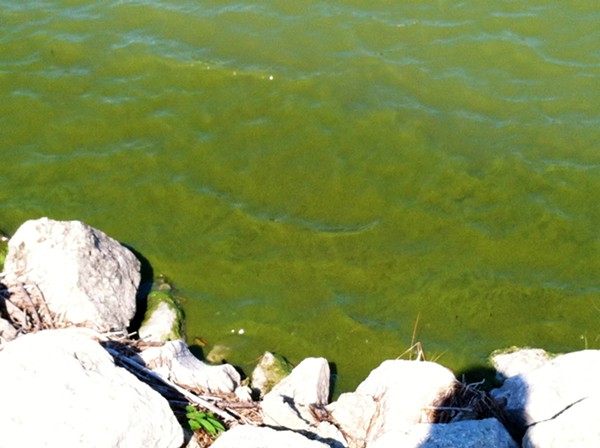New, Stricter Regulations Coming for Ohio Farmers as Kasich Declares Lake Erie Officially Impaired
As reported last summer, the condition of Lake Erie is turning dire. The 2014 toxic algal bloom forced Toledo to shut off its water supply to over 500,000 people, and Michigan's environmental agency declared its portion of the Erie shoreline "impaired." Four years later, the creeks and rivers leading into western Lake Erie are still so inundated by algae-forming phosphorus that the Kasich administration finally had to relent and declare Lake Erie imparied as well, which will mean new and strict regulations on farmers.
Ohio previously stood on a longstanding position emphasizing voluntary incentives for agricultural workers, but it appears the time has come where these voluntary measures are to be made mandatory. The incentives were meant to encourage farmers to take better care of their agricultural runoff that directly correlates to the current toxic algae overtaking Lake Erie.
According to Ohio Environmental Protection Agency (EPA) Director Craig Butler, "We don't see the trend line moving big enough or fast enough. It's time for us to consider the next step." Ohio had set a goal with Michigan and Ontario to reduce phosphorus levels 40 percent over 2008 levels by 2025, but voluntary farming incentives weren't cutting it.
A yet-to-be introduced bill is imminent, including the expansion of the state's definition of agricultural pollution to also include farm runoff. As it stands, the voluntary incentives remain voluntary as farm runoff is not legally classified as pollution. This change would allow the state agriculture department to monitor the watersheds more closely, and allow the Ohio EPA to establish strict requirements for management plans.
Last Wednesday, U.S. District Judge James G. Carr directed the U.S. EPA to make their position on Lake Erie's water crisis clear within the next 30 days.
"Much sooner, rather than later, the right of all persons dependent upon a clean, toxic-algae-free Lake Erie for access to safe drinking water could be accomplished and guaranteed," the judge said.
Environmental Law and Policy Center Executive Director Howard Lerner stated in a press release: "We’re pleased that the federal district court directed U.S. EPA to comply with the Clean Water Act and make a clear determination within 30 days that Lake Erie’s open waters are impaired by pollution.”
The Ohio EPA has had opportunities to take action to protect Lake Erie from these algae blooms, but has continued to deflect and procrastinate.


